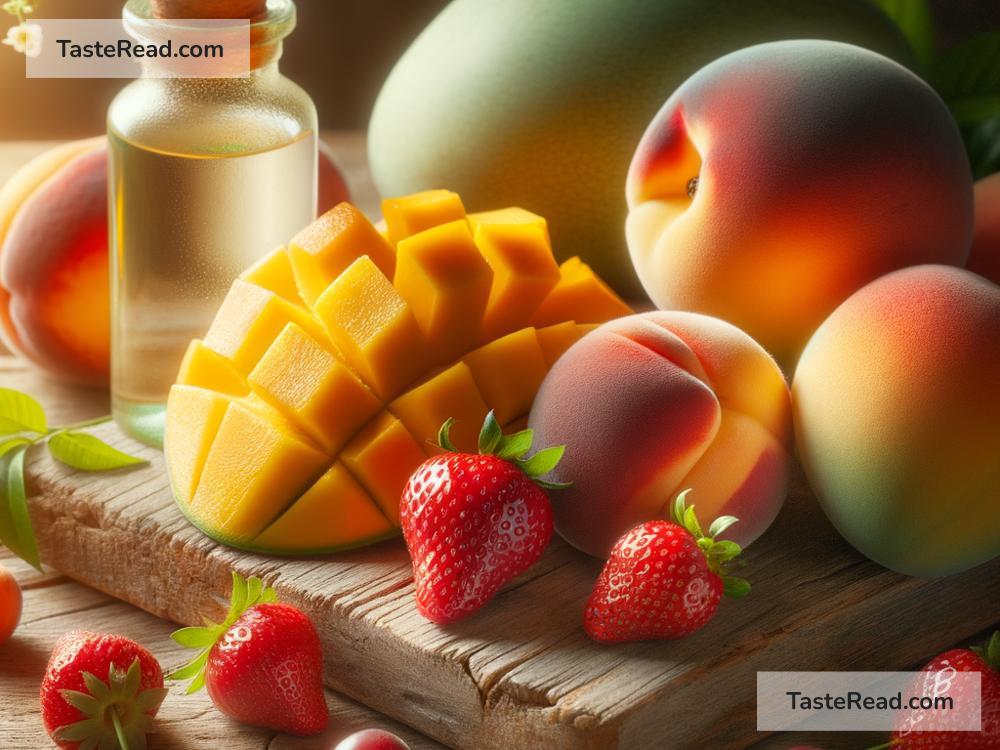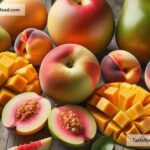Why Certain Fruits Have a Delicate Perfume-Like Aroma
Have you ever bitten into a ripe mango and been greeted by its captivating, perfume-like scent? Or picked up a fresh peach and marveled at its delightful fruity fragrance? Some fruits seem to have a magical ability to fill the air with sweet, delicate aromas that are as attractive as their taste. But have you ever wondered why some fruits smell this way? Let’s explore the science behind these fragrant wonders and learn what makes them special.
The Role of Aroma in Fruits
A fruit’s aroma isn’t just a lucky coincidence—it serves a very important purpose in nature. Fruits are part of a plant’s reproductive system. Their primary goal is to attract animals, such as birds, monkeys, or even humans, to eat them. Why? Because when animals eat a fruit, they often carry the seeds inside to a new location after digestion. This helps plants spread and grow in new areas.
The sweet, perfume-like aroma acts as a signal, telling animals that the fruit is ripe, nutritious, and ready to be eaten. Without this scent, a fruit might not stand out enough to catch the attention of hungry creatures. In essence, a fruit’s fragrance is nature’s marketing tool!
What Creates a Fruit’s Aroma?
The delicate scents that fruits give off come from tiny chemical compounds called volatile organic compounds (VOCs). These compounds easily evaporate into the air, allowing us to smell them. Each type of fruit contains a unique combination of VOCs, which is why a strawberry smells different from an orange, and why a banana doesn’t smell anything like a pineapple.
Some common VOCs found in fruits include:
– Esters: These have sweet, fruity smells and are responsible for the aromas of apples, bananas, and pears.
– Terpenes: These compounds often have a citrusy or pine-like smell and are found in fruits like oranges and lemons.
– Alcohols and Aldehydes: These contribute to many fruity and floral scents, enhancing the overall aroma of fruits like peaches and apricots.
The exact blend of these compounds is the “recipe” that makes each fruit’s scent unique. Think of it like nature’s version of perfume-making!
Why Do Some Fruits Smell Stronger Than Others?
While all fruits contain VOCs, some are much more aromatic than others. For example, tropical fruits like mangos, pineapples, and passionfruit are especially fragrant, while fruits like watermelons and blueberries often have subtler scents. So, why the difference?
-
Evolutionary Reasons: Fruits that grow in dense forests or tropical climates often need to stand out in order to attract animals. Their strong perfume-like aromas help them get noticed in environments where hundreds of plants compete for attention in a relatively small space.
-
Type of VOCs: Some fruits produce more VOCs than others, or they have particularly potent types of VOCs. For instance, the esters in bananas are naturally quite strong, making them more noticeable even from a distance.
-
Water Content: Fruits with high water content, like watermelons, tend to have more diluted aromas compared to dense, fiber-rich fruits like mangos or jackfruit. This is because the compounds responsible for aroma are less concentrated in watery fruits.
-
Ripeness: The fragrance of a fruit also intensifies as it ripens. During the ripening process, the fruit produces more VOCs, signaling to animals that it’s ready to eat. That’s why an unripe mango doesn’t smell as sweet as a perfectly ripe one.
How We Use Fruit Aromas
Humans have long been fascinated by the scents of fruits, and we’ve found ways to capture and use them in creative ways. Perfume makers often use synthetic versions of fruit-based VOCs to create sweet, floral fragrances. Similarly, the food and beverage industry uses artificial esters to mimic the flavors and smells of fruits for products like candy, soda, and ice cream.
Interestingly, some fruits are so fragrant that they’ve earned a place in cultural traditions. For example, the durian, known as the “king of fruits” in Southeast Asia, has such a strong smell that people either love it or hate it. Its aroma is so unique and overpowering that it’s banned in some hotels and public transport systems!
Enjoying Nature’s Gifts
The delicate perfume-like aroma of fruits is one of nature’s many gifts. These scents not only make fruits more enjoyable to eat but also serve an important ecological purpose. Every time you smell the sweet fragrance of a peach or savor the tropical aroma of a pineapple, you’re experiencing the result of millions of years of evolution.
So, the next time you go grocery shopping or visit a farmer’s market, take a moment to appreciate the fruits’ natural perfumes. And when you eat them, remember: their fragrance isn’t just a random feature—it’s part of an amazing story of how plants interact with the world around them. Nature really does know how to create beauty in every sense of the word!


